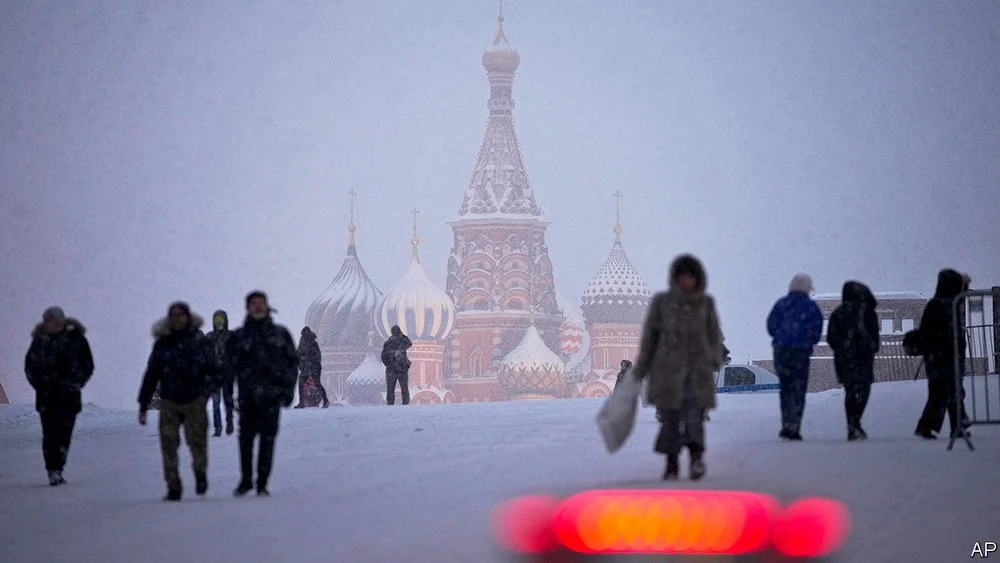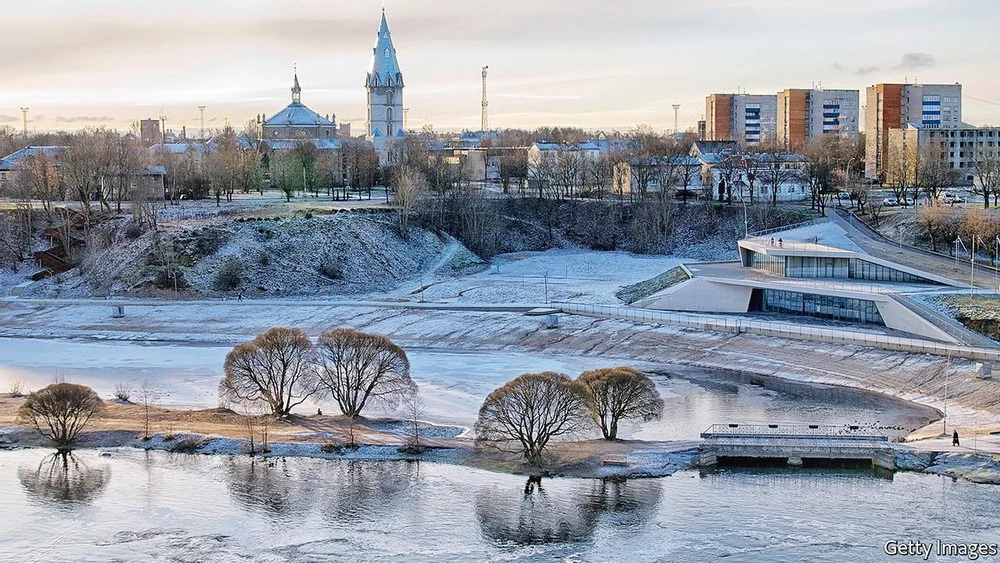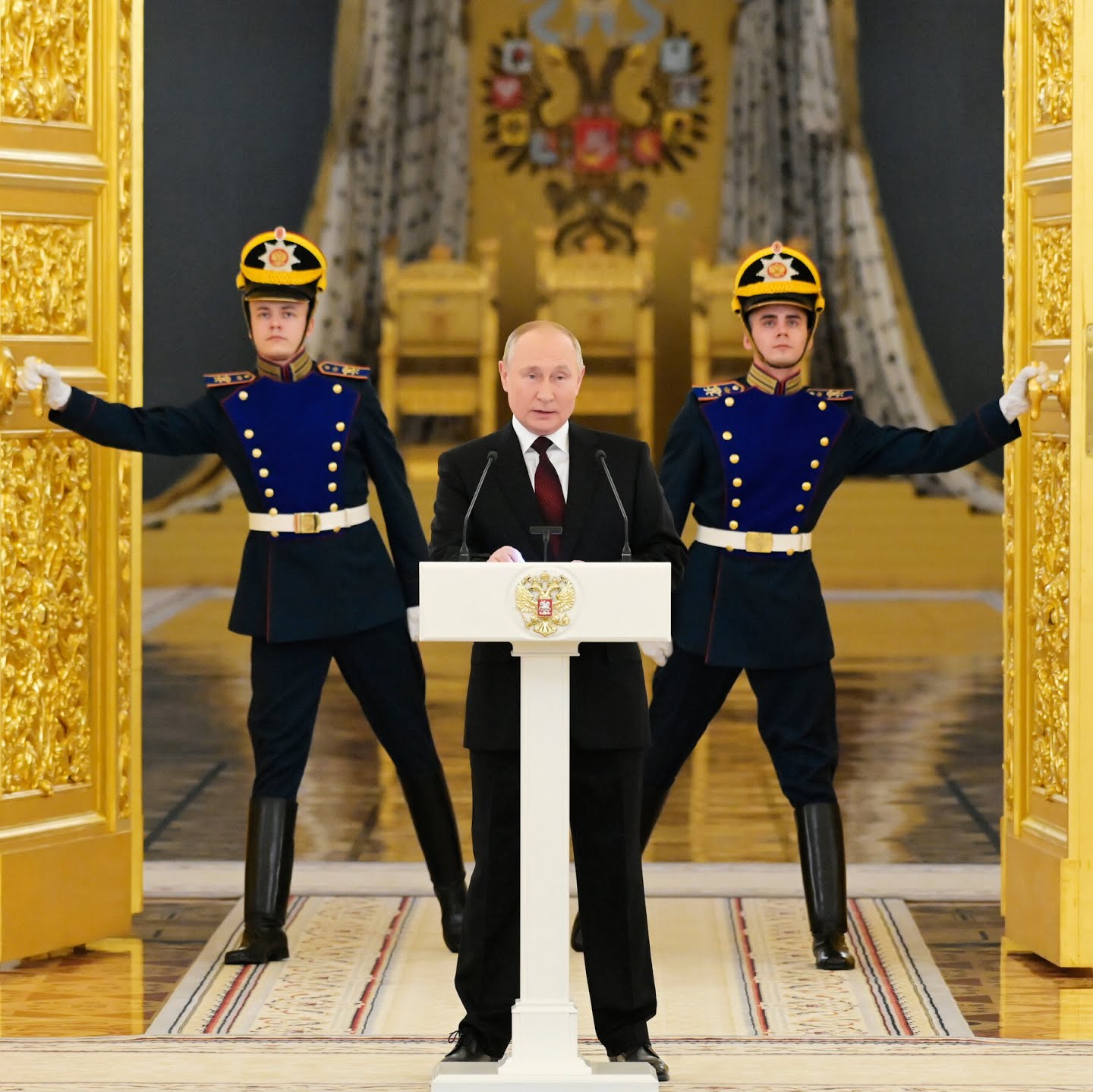…few Russians will be expecting it
•The propaganda machine has not yet been switched on
•Even relatively friendly countries in the region mistrust Russian expansionism
By TE
Igor “strelkov” girkin isn’t used to playing down the idea of a Russian advance into Ukraine. As the Russian army veteran who led the first major armed group into provincial Sloviansk in April 2014, in effect he started the war in the Donbas region. Once there, he spent the next few months urging Vladimir Putin, with increasing desperation and belligerence, to back him the whole way: to link Russian-speaking people in eastern Ukraine from Kharkiv to Odessa and recently-annexed Crimea. That would have put a vast swathe of additional territory under Russian control. But the troops never came.
Now, Mr Girkin says the moment has passed. Ukraine has armed itself with modern weapons, and a ground invasion would be a huge and protracted undertaking. “There aren’t nearly enough troops mobilised, or being mobilised,” he says. “The maximum Putin is doing is a military distraction, possibly to draw troops away from an operation in the Donbas.”
The former commander is one of many in Moscow who are dismissing talk of an invasion. If a big war in Europe does follow—the sort that many Western analysts believe flows logically from the deployment of a large conventional force, along with supporting infrastructure on three sides of Ukraine—most Russians will be caught off-guard. Official propaganda is not gearing up for it. The elite isn’t predicting it. An exasperated radio talk-show host confesses she has given up looking for a counter view. “Everyone I invite on says the same thing: this is Putin’s brinkmanship rather than war.”

This scepticism is shared by those who helped to shape Russia’s political system. Gleb Pavlovsky, a close adviser to Mr Putin during his first two terms in power, from 2000 to 2008, says the Kremlin believes it gains much more from the threat of war than war itself. The appearance of rapid escalation is essential to making any threat effective; this is a lesson Moscow policymakers learned from the American military strategist Thomas Schelling. That does not make the threat entirely illusionary, or a bluff. “The danger is that they are not entirely in control of their red lines,” he says.
For now, Russia and America continue talking, while the hardware continues to arrive. A state of “permanent negotiation”, routine talks and top-table recognition could be a goal in itself, Mr Pavlovsky suggests. What the Kremlin is not yet doing is overtly selling the idea of an invasion to its people. Officially, the country only ever fights “peacekeeping” operations. In 2008, officials said it had “compelled Georgia to peace”. In 2014, it accepted Crimea into the Russian Federation after an “overwhelming referendum in favour”. A big attack on Ukraine would require a lot more creativity.
Centuries of close cultural and familial ties make it harder to create a pretext for an invasion. Even after eight years of conflict and propaganda, Russians remain split on Ukraine. Surveys by the Levada Centre, independent pollsters, suggest that nearly six in ten people are against any war with their “brotherly” neighbour. The government’s official position is in line with the majority. Late in January a spokesman for the foreign ministry described a war with Ukraine as “unthinkable”.
Officials, however, said much the same thing just before the annexation of Crimea in 2014, when Mr Putin stole that long-sought jewel and boosted his approval rating to 89% (it is now back down at 69%). Many of the same local experts failed to predict that Mr Putin would launch that operation and risk international ostracism. And knowledge of how Russia’s leader of 22 years makes his decisions has, if anything, worsened since then.
The present situation, though, is different from the Crimean scenario. There is no clear benefit in taking over a war-torn, hard-up and hostile country, especially if and when the body bags begin piling up. No one is attempting to argue that Ukraine belongs to Russia. The price of conflict—more sanctions and a long economic squeeze—is well understood. Drops in the stockmarket and the value of the rouble stoke public fears. Some 10% of Russians are now shareholders, a number that has grown 16-fold since Crimea. The most worried are selling up and leaving.
Alexei Levinson of Levada says the Kremlin might still build a majority in favour of war if Mr Putin decides to go in. The president’s core supporters, most notably among the elderly, share his hostility to nato and a belief that Ukraine is not a truly independent country, but a proxy of America. Such a war could be sold, and neither local criticism nor shocks to the economy would provide a significant impediment to an invasion. That is the nature of the Putin regime.
As he weighs his choices, the Russian leader is unlikely to feel constrained by foreign views that war is probable and anything else would be a climb-down. What may count for more is the question of what exactly he can extract from negotiations with his American counterpart. If he were to win significant concessions, and avoid a war, Mr Putin would be applauded back home. “The one thing supporters never demand from him is honesty,” says Mr Levinson.
As Russia menaces Ukraine, eastern European countries grow nervous

The municipal offices in the Estonian city of Narva are just a snowball’s throw from Russia. From her window Katri Raik, the mayor, can watch cars and lorries trickling through a border checkpoint. More than 80% of Narva’s residents are ethnic Russians, a legacy of the centuries during which Narva was part first of the Russian empire and then of the Soviet Union. Ethnic Russians, nearly a quarter of the population, have grown more integrated since Estonia became independent 30 years ago. Yet most send their children to Russian-language schools and rely on Russian media. “Yesterday someone on the city council said ‘U nikh v Estonii tak [That’s how it is over there in Estonia],’” says Ms Raik.
A former interior minister, Ms Raik was elected in December pledging to bridge the gap. A new Estonian-language school will open in September. The regional economy is now oriented towards the West. But Russia’s military build-up on the Ukrainian border is reminding Narva of where it sits. Opinion is divided along familiar lines. In several conversations, ethnic Estonians saw Russia as the aggressor, whereas ethnic Russians tended to think the risk of war exaggerated or to blame nato. “We each know what the other thinks, so we simply don’t talk about it,” says Ms Raik.
Across eastern Europe, the threat of war in Ukraine evokes long-standing fears. Most countries, Estonia included, are nato members and face no immediate risk of incursion. But Russian and Soviet expansionism has shaped their politics for centuries. These days many eastern Europeans are at odds with the Kremlin over energy supplies or Russian-financed corruption. Others have friendlier relations, helped by trade, Russian-speaking minorities or politicians who get on with Vladimir Putin, Russia’s president. But even in such places, the crisis in Ukraine is causing problems.
The Baltic countries, which were Soviet territory until 1991, are the strongest voices for deterrence and harsh sanctions. “Interdependence means you can hurt the one who is dependent on you,” says Kaja Kallas, Estonia’s prime minister, whose mother’s family was deported to Siberia under Stalin. Her government is trying to send weapons to Ukraine, but Germany has been blocking the passing-on of German-made equipment. On January 27th Latvia’s defence minister called the German stance “immoral and hypocritical”.
Last summer, when Mr Putin wrote an essay claiming that Ukraine was not a legitimate nation, it rang alarms in Estonia, Latvia and Lithuania, because he had made similar arguments about them in the 2000s. Defence planners in these countries consider Russia an existential threat.
In Romania and Bulgaria, things are more complex. Both are nato members. But their politics are plagued by corruption, some of it tied to Russia. They have not always been enthusiastic about American policies that link anti-corruption efforts to regional security. Romanian politicians have clamoured for years for nato to upgrade its presence, though Bulgarian ones downplay new deployments to avoid provoking voters with Russian sympathies. Still, both countries were furious when Russia demanded on January 21st that nato pull allied forces out of their territory. On February 2nd Joe Biden instead announced the deployment of an additional 3,000 troops to the region
It is in central Europe that attitudes towards Russia are most ambivalent. Viktor Orban, Hungary’s populist prime minister, is friendly with Mr Putin and visited him in Moscow on February 1st. He has imitated Mr Putin’s model of government by taking control of his country’s media and judiciary. He has also bought Russian nuclear power plants, struck deals for Russian gas that circumvent Ukraine and persistently called for relaxing eu sanctions. Milos Zeman, the Czech Republic’s president, is cosy with Mr Putin, too. But Petr Fiala, the new Czech prime minister, is solidly in step with nato and the eu.
Poland’s government also has some affinity with Mr Putin’s. It is conservative, religious and nationalist, and is fighting with the eu over its efforts to turn judges into political pawns. Yet it is the most fiercely anti-Russian government in Europe. The Russian empire ruled much of Poland throughout the 19th century and tried to Russify its population. In the second world war Stalin carved Poland up with Hitler and executed much of its elite. Many Poles see Russia as a country that tried to eliminate them as a nation.
Eastern European countries will pay a price for isolating Russia, especially in energy. In October Moldova was forced to strike an expensive gas deal with Gazprom, and rising electricity bills nearly toppled Ms Kallas’s government in January. But only for the Baltic countries is Russia among the top five export markets. In no country is direct investment from Russia more than a tenth that from the eu, though in some pockets it plays a significant role.
In Narva, for instance, about 30% of the firms in the city’s industrial zone are owned by Russians, reckons Vadim Orlov, the zone’s director. Russian businessmen want factories in a country governed by the rule of law. Why should Estonia back sanctions that could make things harder for its own Russian-owned businesses?
One reason is that Russia likes to use sanctions too. Ms Kallas mentions 2007, when it retaliated for the removal of a memorial to Soviet soldiers in Tallinn by cutting off fuel supplies. Dumitru Alaiba, a Moldovan mp, recalls 2014, when Russia hit his country with an embargo after it signed an association agreement with the eu. “[We] have learned that dealing with Russia has risks,” says Ms Kallas. If the region’s ties to Russia are further weakened, Mr Putin will have himself to blame.
Credits | The Economist

